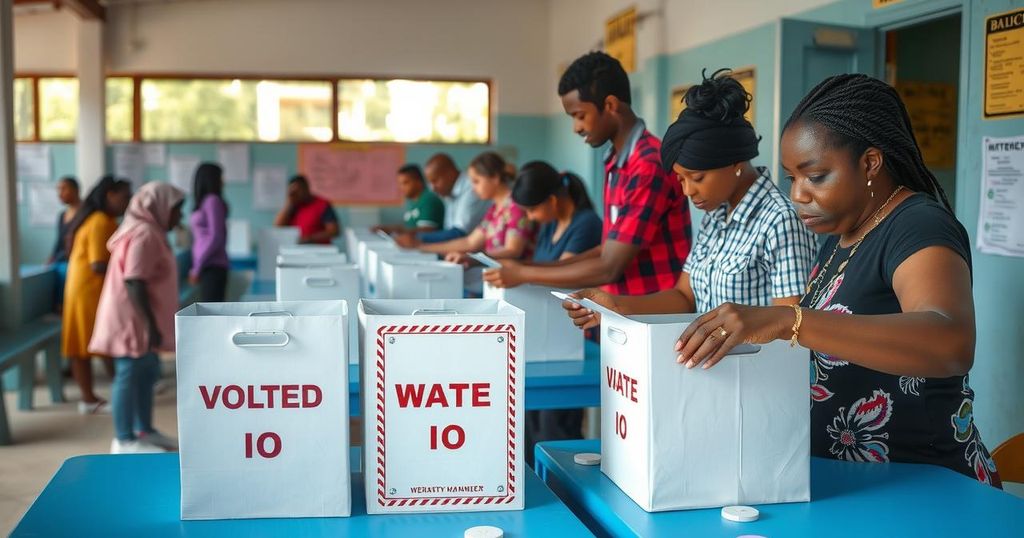World news
ABDALLAH SAMBI, AFRICA, AUSTRALIAN ASSOCIATED PRESS, AZALI ASSOUMANI, COMOROS, ELECTION FRAUD, GOVERNANCE, GOVERNMENT, HAMIDOU KARIHILA, HOPE OF THE COMOROS, INDIAN OCEAN, INDIAN OCEAN ARCHIPELAGO, JUWA, NO, NOUR EL - FATH, OPPOSITION, POLITICS, PRESIDENTIAL ELECTION, REUTERS, SUPREME COURT
Fatima Alavi
0 Comments
Comoros Voters Head to Polls Amid Political Turmoil and Allegations of Irregularities
Voters in Comoros are casting ballots for a 33-seat parliament amid allegations of electoral irregularities against President Azali Assoumani, who has led since 1999. With approximately 338,000 registered voters, the elections come after substantial calls for reform and possible boycott from some opposition factions, even as others participate to expose governmental flaws. Results are expected by Friday.
Voters in Comoros have officially commenced elections for the nation’s 33-seat parliament following the recent re-election of President Azali Assoumani amidst allegations of electoral misconduct. The population has seen growing discontent regarding Assoumani’s leadership, which began in 1999 after a coup, and his consolidation of power, including the assignment of significant governmental responsibilities to his son, Nour El-Fath. Despite the opposition’s calls for election boycotts, others remain committed to participating in the electoral process, believing it may highlight the government’s failings. Approximately 338,000 citizens are registered to vote, with results anticipated by the end of the week.
The political landscape in Comoros has been tumultuous, particularly following President Azali Assoumani’s return to power. His prior regime has faced serious accusations of authoritarian practices, leading to skepticism about his governance intentions, particularly regarding dynastic succession. The current parliamentary elections mark a significant moment, as the populace grapples with the implications of Assoumani’s rule and the decision whether to engage politically amidst calls from some opposition factions to abstain. The Supreme Court’s selection of nearly 100 candidates signals a competitive election landscape, though marred by unresolved allegations of previous electoral irregularities.
The parliamentary elections in Comoros represent a critical juncture for the nation amid ongoing political strife and contested leadership. The outcome will not only impact legislative representation but may also influence public sentiment toward the established regime under President Assoumani. The political dynamics surrounding these elections, including the opposition’s strategies and the general population’s response to governance, will be pivotal in shaping the immediate future of Comoran democracy.
Original Source: www.naroomanewsonline.com.au




Post Comment